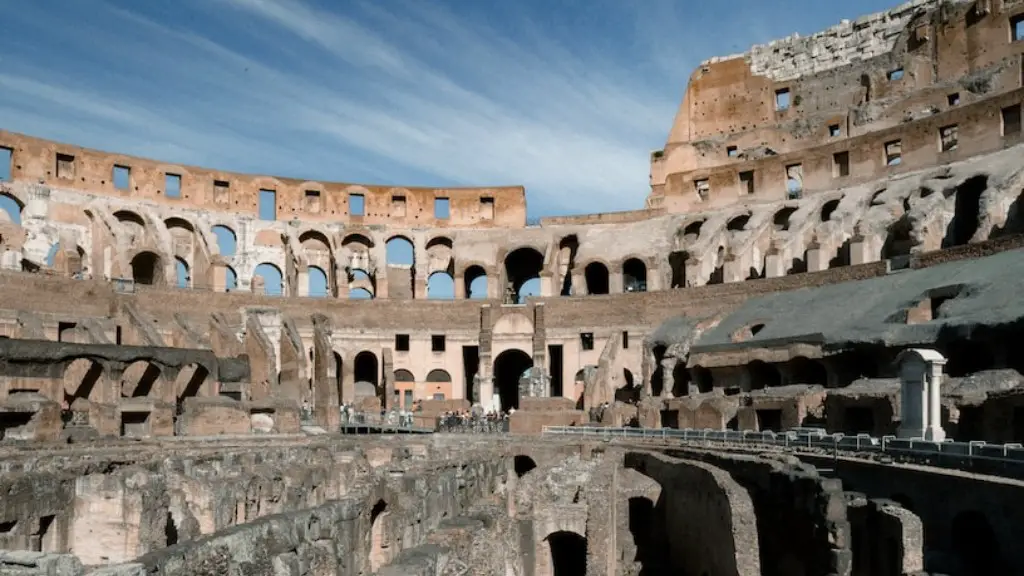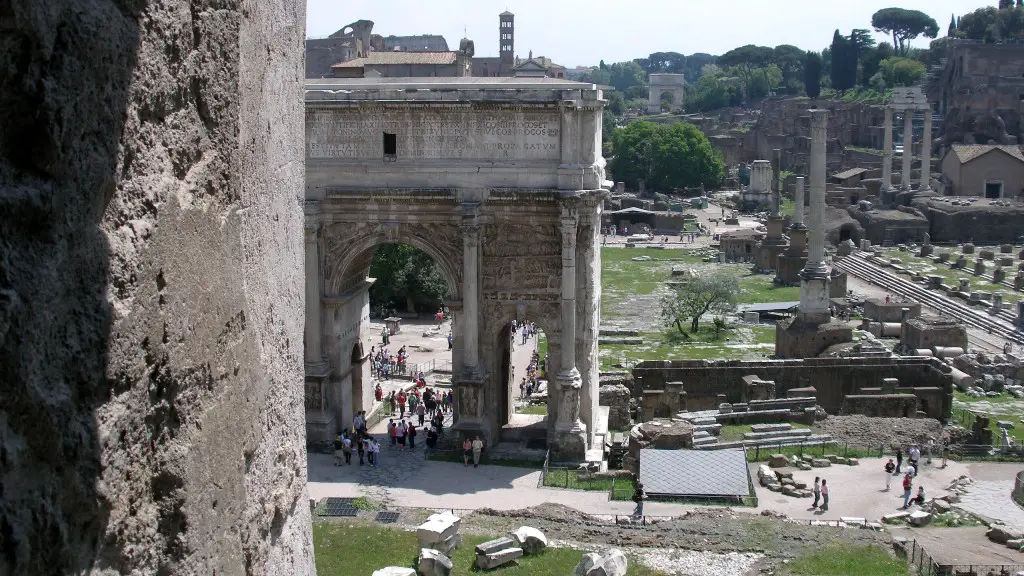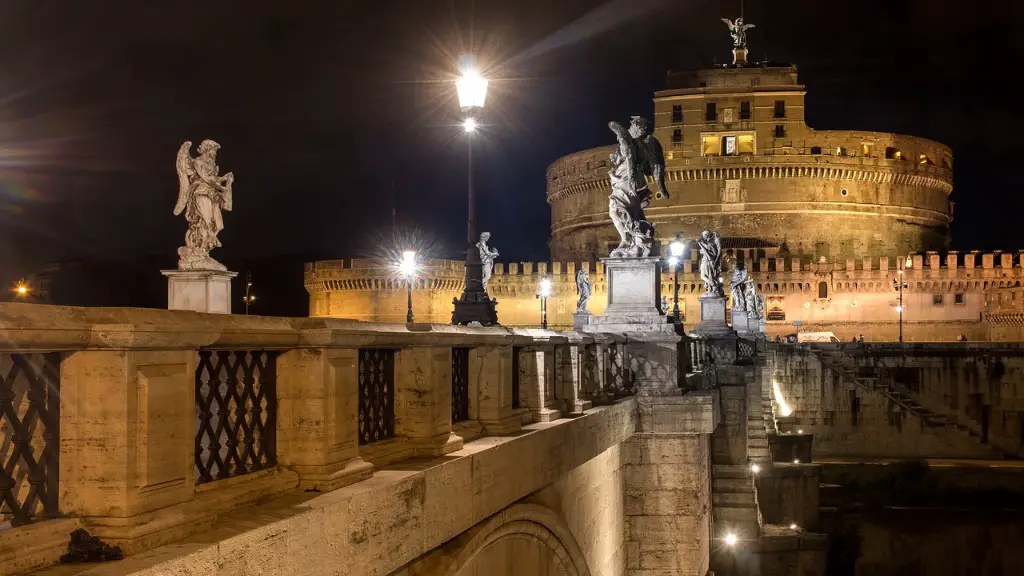Roman society was largely polytheistic, and early Christians were often seen as a threat to the established order. As a result, Christians were often treated harshly and persecuted by the government. This changed, however, under Emperor Constantine, who granted official status to Christianity in the Edict of Milan in 313 AD.
Christians were often treated poorly in ancient Rome. They were often persecuted and even killed for their beliefs.
How were Christians treated by the Roman Empire?
The Roman state’s official position towards Christians was generally one of ignoring them unless they clearly challenged imperial authority. This changed however, during the first two centuries CE when Christians were occasionally persecuted and formally punished for their beliefs. While the reasons for this shift are not entirely clear, it likely has to do with the growing popularity of Christianity and the threat it posed to the Roman state.
It is often claimed that Christians were persecuted for their refusal to worship the emperor, but it is more likely that the general dislike for Christians arose from their refusal to worship the gods or take part in sacrifice, which was expected of those living in the Roman Empire. Christians were seen as a potential threat to the Roman way of life and the emperor’s authority, and so they were often persecuted.
How did the Roman Empire feel about Christianity
Although the followers of Jesus were working hard to spread the message, there were still very few Christians in Rome. They were regarded with suspicion. Some important Christian rituals were mistaken as cannibalism, others as incest. Christians became an easy target.
Rome had the most problems with monotheistic religions, such as Judaism and Christianity, because these religions believed in only one god. This meant that followers of these religions were not allowed to worship any other gods.
Did Christianity destroy the Roman Empire?
The rise of Christianity did play a small, but not insignificant, part in the decline of the Roman Empire. Christianity eroded traditional Roman beliefs and values and caused conflicts between Christians and those who continued to hold onto the old pagan philosophies. While Christianity was not the sole cause of the decline of the Roman Empire, it was a contributing factor.
The Roman government was generally tolerant of different religions and religious practices. However, some religions were banned for political reasons, and other rites which involved human sacrifice were also banned.
What did Jesus say about the Romans?
It is important to obey both the laws of God and the laws of the land. Jesus taught His followers to do both. We are to give Caesar what is due to him, and we are to give God what is due to Him. We are to obey the government, but we are not to put it above God.
The Diocletianic or Great Persecution was the last and most severe persecution of Christians in the Roman Empire. In 303, the emperors Diocletian, Maximian, Galerius, and Constantius issued a series of edicts rescinding Christians’ legal rights and demanding that they comply with traditional religious practices. This persecution was especially ruthless, leading to the deaths of many Christians.
Did Jesus break Old Testament laws
There are a couple of things to unpack here. First, it’s important to understand that the law Jesus is referring to is the Mosaic Law, which was given to the Israelites. So when James says that anyone who stumbles at one point of the law is guilty of breaking it all, he’s saying that anyone who doesn’t obey the Mosaic Law perfectly is guilty of breaking all of it.
That being said, it’s important to remember that Jesus was born under the Mosaic Law. That means that he was subject to all of its requirements and regulations. So when James says that Jesus never broke any Old Testament laws, he’s saying that Jesus perfectly obeyed all of the requirements of the Mosaic Law.
This is significant because it shows us that Jesus is the perfect embodiment of God’s law. He is the perfect example of how we are supposed to live our lives. And that’s why we can trust him when he says that he is the way, the truth, and the life.
While the exact circumstances of Jesus’ death are not known, it is generally thought that he was executed in Jerusalem around 30CE. This is likely due to the fact that he was tried and convicted under Roman law in the province of Judea. As such, it is most probable that Jesus spent his entire life within the Roman Empire.
Who was emperor when Jesus was crucified?
Tiberius was the second emperor of the Roman Empire, ruling from 14 AD until his death in 37 AD. He was a successful military commander, often compared to Julius Caesar, and was a popular and effective ruler. However, he was also known for his paranoia and cruelty, and towards the end of his life he became increasingly reclusive and withdrawn.
Pontius Pilate was the fifth governor of the province of Judaea, appointed by Tiberius in 26 AD. He is best known for his role in the crucifixion of Jesus Christ, which took place during his governorship.
The Spread of Christianity
Christianity began as a small faith in the Middle East, but by 325 it had spread throughout most of the Roman Empire. This rapid expansion was due in part to the fact that Christianity was adapted to fit the needs of the people living in different regions. For example, in regions where there was a lot of crime, Christians stressed the importance of forgiveness. In areas where people were unhappy with their leaders, Christians talked about the equality of all people before God. This message was appealing to many people, and as a result, Christianity spread quickly. Unfortunately, not everyone was happy with the spread of Christianity, and many Christians were persecuted for their beliefs. However, this only served to further cement the faith, and by the fourth century, Christianity had become the dominant religion of the Roman Empire.
What happened to Christianity in Rome
The Roman Empire fell in 476 AD, but Christianity continued to spread throughout the Western Roman Empire. Over the next several centuries, Christianity became the dominant religion in the city of Rome and in the European regions that the Roman Empire had once ruled.
The Old Testament laws were given to represent the great salvation that was to come through Jesus Christ. These laws have now been surpassed by the greater salvation that is found in Christ. Christ is the fulfillment of the law and brings us salvation from our sins. This is the greatest salvation that we can receive.
What the law could not do Bible?
The law cannot change our hearts or make us truly righteous. Only God can do that. So, He sent His own Son, Jesus Christ, to walk among us as a perfect example. He then willingly gave His life to pay the penalty for our sinfulness, so that we might be forgiven and have new life in Him. This is why we are now called to live according to the Spirit, instead of the flesh.
It is important to understand that when Jesus speaks of fulfilling the law and the prophets, He is not speaking of doing away with them. Instead, He is speaking of bringing them to completion. In other words, He is saying that He came to complete what the law and the prophets had started. He did not come to do away with them, but to finish what they had begun.
What was Jesus last name
In the Bible, Jesus is referred to as Jesus Christ or Jesus of Nazareth. Christ is a title, not a last name. So if Christ isn’t a last name, what was Jesus’s last name? The answer is Jesus didn’t have a formal last name or surname like we do today.
Pope Francis has stated that the historical Jesus most likely spoke a Galilean dialect of Aramaic. Aramaic was a widely-spoken language in the Middle East by the 7th century BC, and would have been the principal language of Jesus and his contemporaries. Most religious scholars and historians agree with Pope Francis on this point.
Conclusion
Christians were not always treated very well in ancient Rome. There were times when they were persecuted and even killed for their beliefs. However, there were also periods of toleration, when Christians were allowed to practice their religion without fear of being persecuted.
Christians were not always treated kindly in ancient Rome. At first, they were seen as a threat to the established order. later, as the Empire began to crumble, Christians were blamed for its decline. In the end, however, many Romans came to see Christianity as a source of hope and strength, and the religion began to take root in the Empire.





